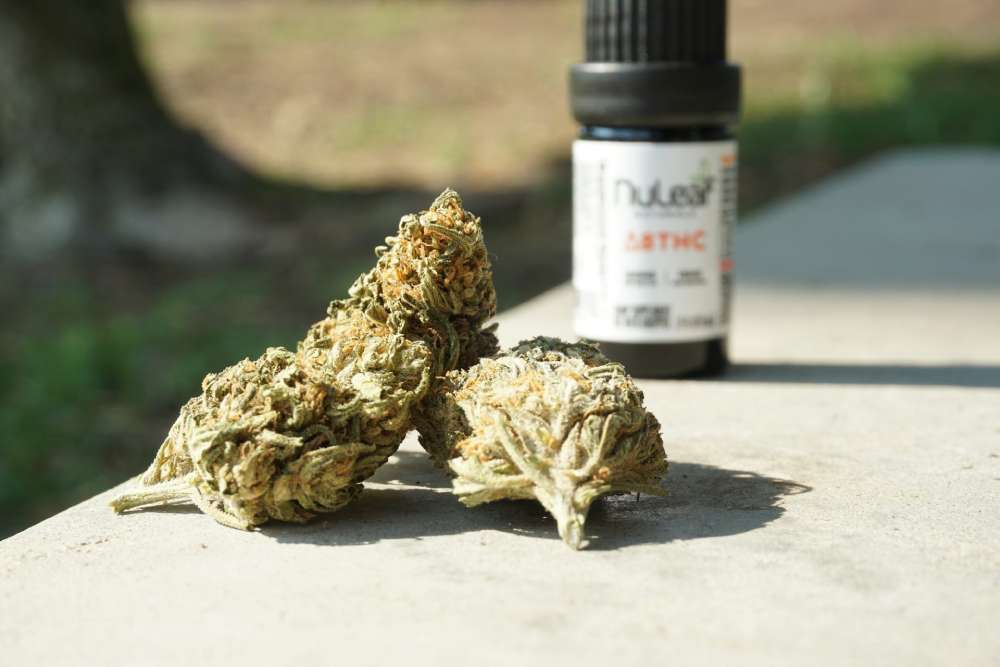CBD vs THC: Choosing the Best for You
With the increasing popularity and legalization of cannabis products across the globe, a growing number of people are interested in understanding the nuances of different compounds found in cannabis plants. Among these compounds, CBD (cannabidiol) and THC (tetrahydrocannabinol) stand out as the most notable due to their distinct benefits and effects. Understanding the differences between CBD and THC can help consumers make informed choices, whether for health benefits, recreational use, or both.
Contents
CBD and THC: What Are They?
Origins and Basic Differences
Cannabidiol (CBD) and tetrahydrocannabinol (THC) are two of the most prevalent cannabinoids derived from the cannabis plant. Despite being closely related, they have notably different effects on the human body. Both CBD and THC interact with the endocannabinoid system (ECS), which plays a crucial role in maintaining homeostasis within the body. However, their interaction with ECS receptors is unique to each compound.
CBD is primarily extracted from hemp, a variety of the Cannabis sativa plant that contains minimal THC levels. Due to these negligible THC levels, hemp-derived products are less psychoactive, focusing more on therapeutic benefits. On the other hand, THC is the main psychoactive compound found in marijuana, a different variety of the Cannabis sativa plant, and is responsible for the “high” typically associated with cannabis consumption.
Chemical Structure and Psychoactive Components
CBD and THC share a similar chemical structure of 21 carbon atoms, 30 hydrogen atoms, and 2 oxygen atoms. However, their atomic arrangement differs, leading to varied effects on the body. This structural difference allows THC to bind well with CB1 receptors in the brain, thus causing its psychoactive effects. Conversely, CBD has a low affinity for these receptors and can even decrease THC’s binding ability, reducing the psychoactive impact.
The Benefits and Uses of CBD
Therapeutic Advantages
CBD is renowned for its vast array of potential health benefits:
- Pain Relief: CBD has been extensively studied for its analgesic properties. It is known to reduce chronic pain by impacting endocannabinoid receptor activity, reducing inflammation, and interacting with neurotransmitters.
- Anxiety and Depression Management: Many users and clinical studies have suggested that CBD can provide relief from anxiety and depression without the side effects associated with pharmaceutical medications.
- Neuroprotective Properties: Research indicates that CBD could assist in treating neurological disorders. For example, the FDA has approved Epidiolex, a CBD-based medication for certain types of epilepsy, due to its effectiveness in reducing seizures.
- Anti-Inflammatory and Skin Benefits: CBD’s anti-inflammatory properties make it a popular ingredient in skincare products, potentially helping with conditions like acne and psoriasis.
Non-Psychoactive Nature
One of the primary reasons CBD is favored by many is its non-psychoactive nature. This means that individuals can benefit from its therapeutic effects without experiencing the euphoria associated with THC. This facet makes CBD suitable for those looking for relief while maintaining full cognitive functions and avoiding any impairment.
The Benefits and Uses of THC
Psychoactive Effects
While THC is often scrutinized for its psychoactive properties, these attributes contribute to a variety of positive experiences for many users:
- Euphoric Experience: For recreational users, the euphoric or ‘high’ feeling can enhance creative thoughts, relaxation, and overall enjoyment during leisure activities.
- Appetite Stimulation: THC is well known for its ability to stimulate appetite, which can be particularly beneficial for those undergoing treatments such as chemotherapy where appetite loss and nausea are prevalent.
Medicinal Purposes
Despite its reputation primarily as a recreational compound, THC has significant therapeutic potential:
- Pain Management: Like CBD, THC releases pain by interacting with the brain’s pathways and is often used to treat pain-related conditions like multiple sclerosis and arthritis.
- Insomnia and Sleep Disorders: THC’s sedative effects can be helpful in managing sleep disorders, allowing individuals who struggle with sleep to achieve better rest.
- Addressing Mental Health Issues: Although potentially habit-forming, THC has shown promise in managing certain mental health issues when used in moderation under professional guidance.
Potential Side Effects: CBD vs THC
CBD Side Effects
CBD is generally well-tolerated, but some users may experience mild side effects such as dry mouth, fatigue, and changes in appetite. It’s also important to note that CBD can interact with certain medications, so it’s crucial for individuals to consult healthcare professionals before integrating CBD into their regimen.
THC Side Effects
The psychoactive nature of THC means it presents more prominent side effects than CBD. These can include altered senses, mood changes, impaired body movement, difficulty with thinking and problem-solving, and an increased heart rate. Long-term or excessive use can lead to dependence, so moderation is essential.
How to Choose the Right Compound for You
Understanding Your Needs
The choice between CBD and THC depends largely on an individual’s desired outcomes. Those seeking therapeutic benefits without psychoactive effects may lean towards CBD, while those looking for both medicinal properties and the psychoactive “high” might find THC more desirable.
Legal Considerations
Another crucial factor in the decision-making process is the legality of CBD and THC in your region. While CBD is widely accepted and legal in many areas due to its non-psychoactive nature, THC’s legal status varies more significantly. Be sure to research and adhere to local laws and regulations regarding cannabis products.
Consulting with Professionals
Before using either CBD or THC, consulting with healthcare professionals is highly recommended, especially for those with underlying health conditions or who are on other medications. Professional guidance ensures safe and effective use tailored to individual health needs.
In conclusion, both CBD and THC have their distinct advantages, and choosing between them depends on your health goals, lifestyle, and legal landscape. By weighing the pros and cons and seeking professional advice, you can make an informed choice that best suits your personal needs.

